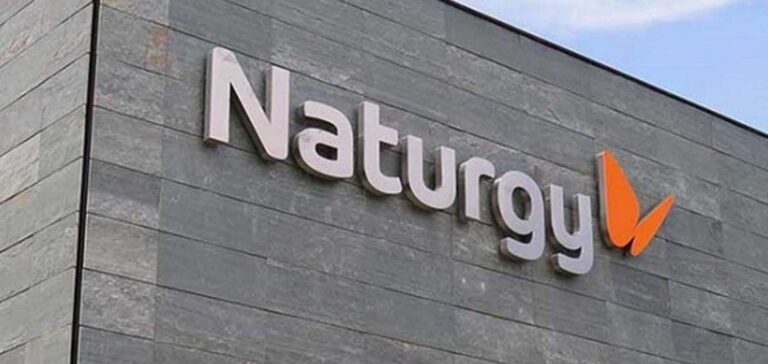The Naturgy Group, Spain’s leading gas supplier, doubled its profits and reduced its debt in the first half of the year, thanks to good operating results internationally and the expansion of its renewable energies business.
Naturgy announces sharply higher net profits for the first half of 2023 despite the gas crisis.
The former Gas Natural Fenosa, renamed Naturgy in 2018, generated 1.04 billion euros in net profit between January and June, compared with 557 million over the same period in 2022, according to results released by the company on Monday. This figure is well above the forecasts of analysts surveyed by the financial information provider Factset, who were expecting an average profit of €758 million.
This momentum was driven by good operating results, particularly in Latin America, which more than offset the drop in gas prices on world markets following the surge in prices observed in 2022 after Russia’s invasion of Ukraine. In the first six months of the year, the Spanish group generated gross operating income (Ebitda) of 2.85 billion euros, compared with 2.04 billion euros in the first half of 2022. In Latin America, Ebitda grew by 33% in the regulated market.
Naturgy is investing in renewable energies and moving towards decarbonization.
At the same time, Naturgy continued to expand in the renewable energies sector, with the opening of its third wind farm (“Berrybank II”) in Australia. This momentum enabled the Spanish group not only to significantly reduce its debt, which stood at 10.75 billion euros at the end of June, compared with 12.07 billion euros at the end of December (-11%), but also to step up investments to “green” its activities.
The Spanish group – which jointly manages the Medgaz pipeline linking Spain to Algerian gas fields with the Algerian group Sonatrach – invested 839 million euros (+16% year-on-year), mostly in the “renewable” sector, in Spain and Latin America. Naturgy, which has a total installed capacity of 5.7 gigawatts, signed an agreement in the first half of the year with French investment fund Ardian to acquire a vast Spanish renewable energy portfolio for 536 million euros.
In early 2022, Naturgy announced its intention to split into two listed companies, as part of a major restructuring designed to separate its regulated activities (transmission and distribution) from its marketing activities. But this project, dubbed Geminis, was poorly received by the markets and suspended due to the war in Ukraine. The group, which was the subject of persistent rumors last year, has not given up on the idea.






















